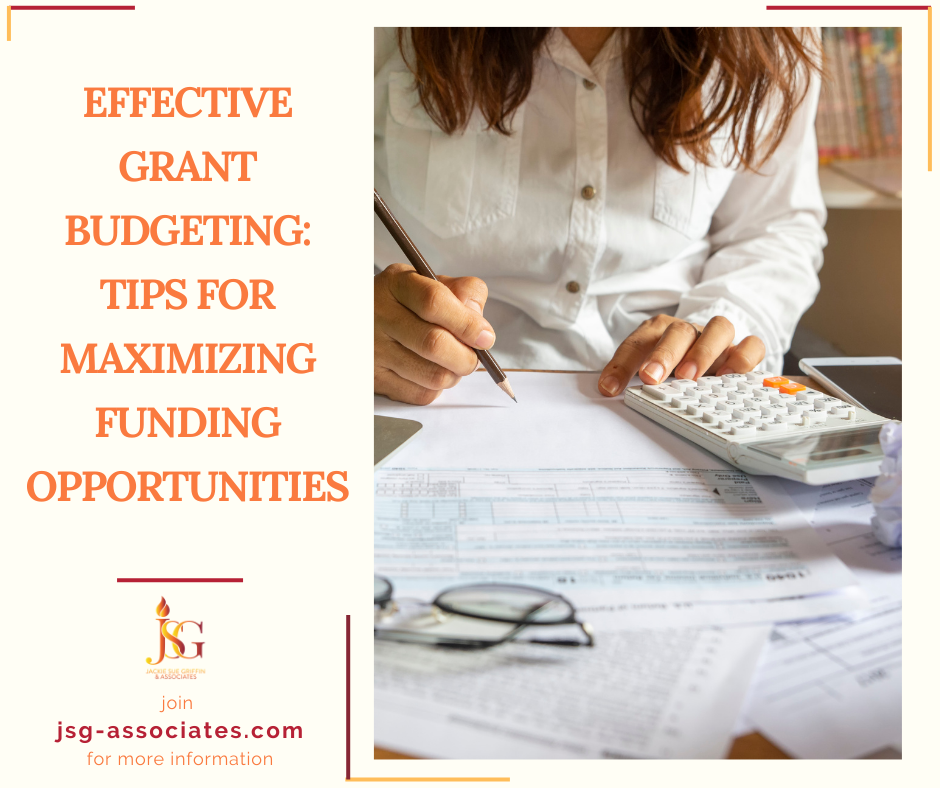
13 May Effective Grant Budgeting: Tips for Maximizing Funding Opportunities
Securing grant funding is crucial to a nonprofit’s growth, and it starts with crafting a well-planned and realistic budget. In this article, we’ll explore effective grant budgeting strategies that nonprofits can implement to strengthen their grant applications, increase their chances of success, and ultimately, make a greater impact in their communities.
Understand Grant Guidelines and Restrictions
Before diving into the budgeting process, it’s essential for nonprofits to thoroughly review the grant guidelines and restrictions provided by the funding organization. Understanding the specific requirements and limitations outlined in the grant application is crucial for developing a budget that aligns with the funder’s priorities and expectations. Nonprofits should pay close attention to any budgetary restrictions, such as allowable expenses, indirect cost rates, matching requirements, and reporting obligations. By adhering to the grant guidelines and ensuring compliance with the funder’s requirements, nonprofits can demonstrate their ability to responsibly manage grant funds and increase their credibility in the eyes of funders.
Develop a Detailed Project Budget
A well-developed project budget is a key component of a successful grant application. Nonprofits should create a detailed budget that accurately reflects the costs associated with implementing the proposed project or program. This includes both direct costs, such as personnel salaries, supplies, equipment, and travel expenses, as well as indirect costs, such as administrative overhead and facility expenses. When developing the project budget, nonprofits should be realistic in their estimates, taking into account potential cost overruns and unexpected expenses. It’s also important to allocate sufficient funds for evaluation and monitoring activities to ensure the project’s success.
Additionally, nonprofits should clearly justify each budget line item and provide an explanation for the proposed expenditures. This helps the funding organization understand how grant funds will be utilized to achieve the project’s objectives.
Maximize Cost-Effectiveness and Efficiency
Grant reviewers are often looking for proposals that demonstrate cost-effectiveness and efficiency in resource utilization. Nonprofits should strive to maximize the impact of grant funds by identifying opportunities to reduce costs, leverage existing resources, and collaborate with partners and stakeholders. One strategy for maximizing cost-effectiveness is to explore volunteer support to supplement grant funds. Nonprofits can also seek out discounts, pro bono services, and donated goods and services to stretch their budget further and increase the project’s sustainability.
Furthermore, nonprofits should carefully evaluate the scalability and long-term sustainability of proposed projects to ensure that grant funds are invested wisely and have a lasting impact beyond the grant period. By demonstrating a commitment to efficiency, effectiveness, and sustainability, nonprofits can strengthen their grant applications and increase their competitiveness in the funding process.
Effective grant budgeting is essential for nonprofits seeking to maximize funding opportunities and achieve their mission-driven goals. By understanding grant guidelines, developing detailed project budgets, and maximizing cost-effectiveness and efficiency, nonprofits can strengthen their grant applications and increase their chances of securing vital funding to support their important work in the community.

No Comments